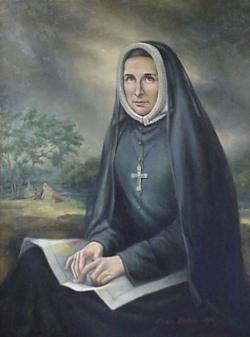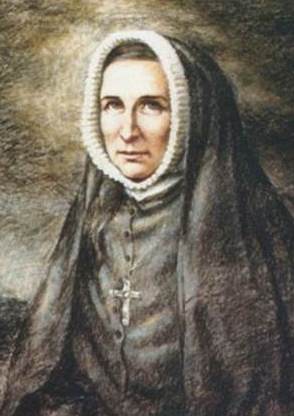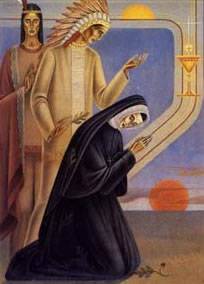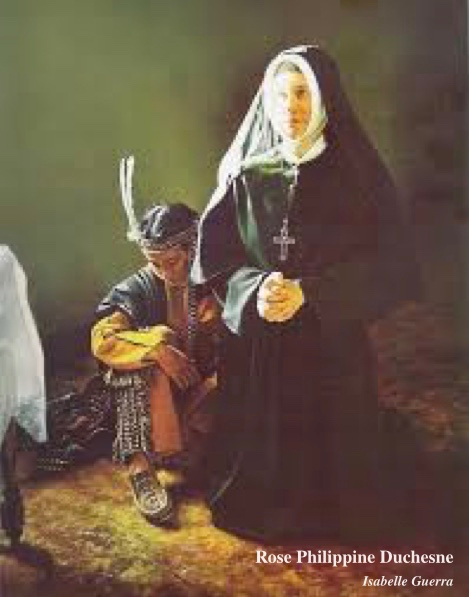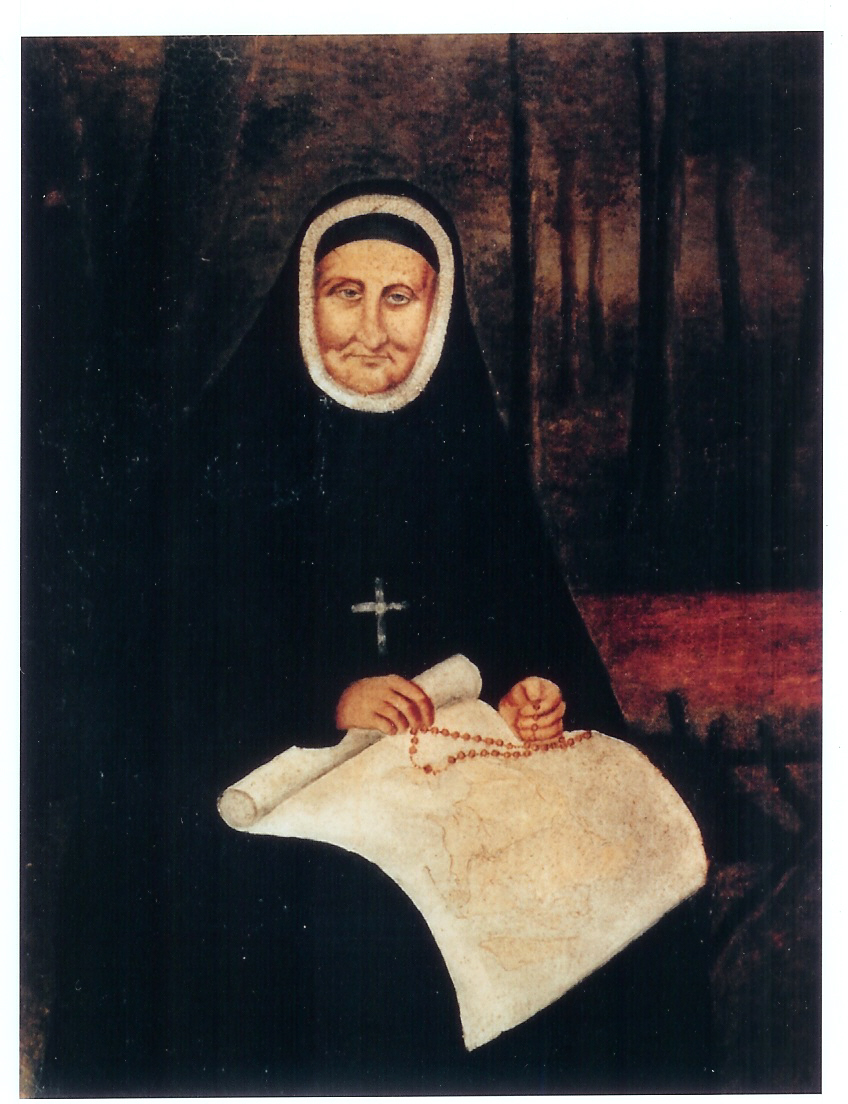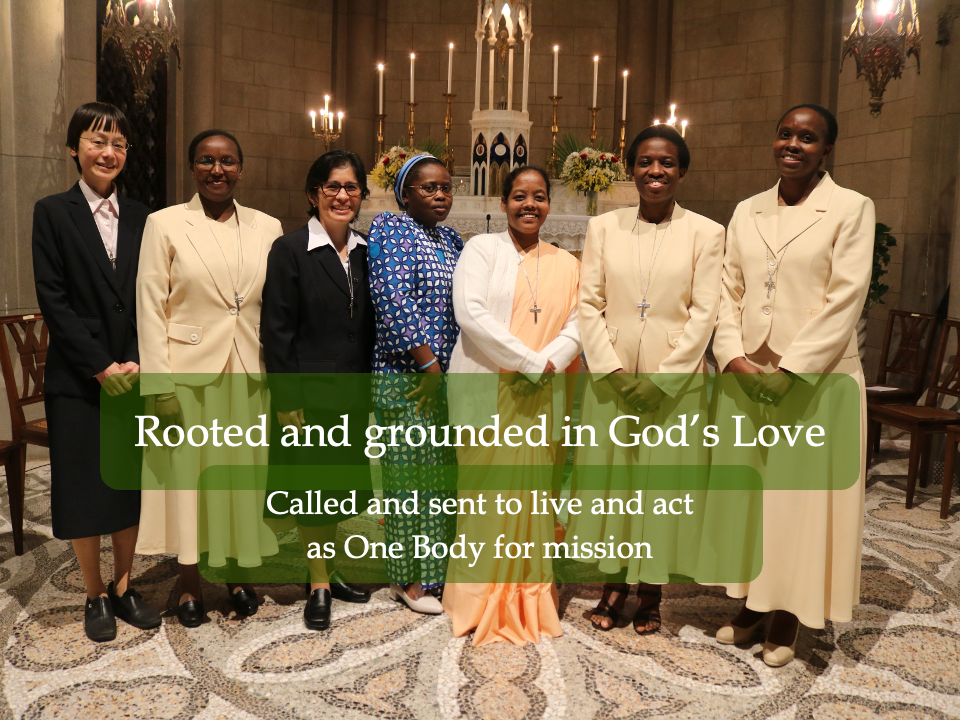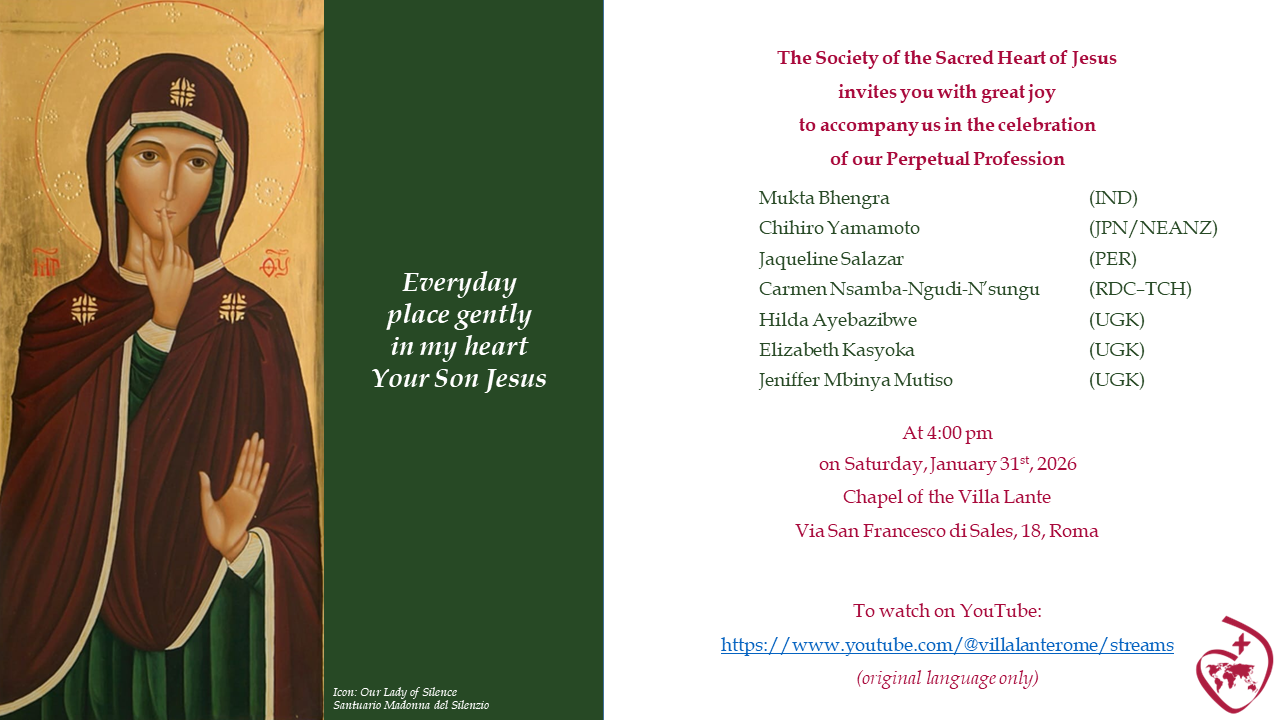Rose Philippine Duchesne was born in Grenoble, France in 1769. After preparing for her first communion at the Visitation convent nearby, her desire to give her life to God led her to join the Visitation community, a cloistered, contemplative order, despite her longing to serve God in missionary lands. In the aftermath of the French revolution, her convent was closed by the government. For ten years Philippine served the destitute of Grenoble as she searched for God’s desires for her.
In 1804 Madeleine Sophie Barat was told about Philippine Duchesne, a woman of uncommon gifts and grace. Their first meeting led to an immediate soul friendship. Philippine joined the Society of the Sacred Heart and her desire to bring God to distant lands was realized in 1818 when she and four companions sailed to the New World. Here she longed to work among the Native Americans but it would be 23 years before she went to live among the Potawatomi. Before realizing her heart’s desire Philippine established the first Catholic schools west of the Mississippi and oversaw the growth of the Society of the Sacred Heart in the United States.
Frontier life exacted an enormous toll both physical (hunger, cold, poverty, sickness) and psychological (the difficulties of distance and communication, letters sometimes delayed six months or more). Philippine never believed she had the gift of leadership and died in 1852 thinking herself a failure. History reveals otherwise: Native Americans saw in her a woman “who prays always”; the schools she founded became part of a network of Sacred Heart Schools around the world; and the Society of the Sacred Heart remains an international community, bound together across six continents as much by relationships as by a common spirituality and mission.
Rose Philippine Duchesne was named a saint of the Church in 1988.
Click on one of the categories below to see more information about Philippine and her bicentennial celebration in 2018:
Bicentennial News and Activities,
“Rebecca Moments” and “Mission on the Frontiers”,
Rose Philippine Duchesne: Life, Mission, and Writings,
Section |History

